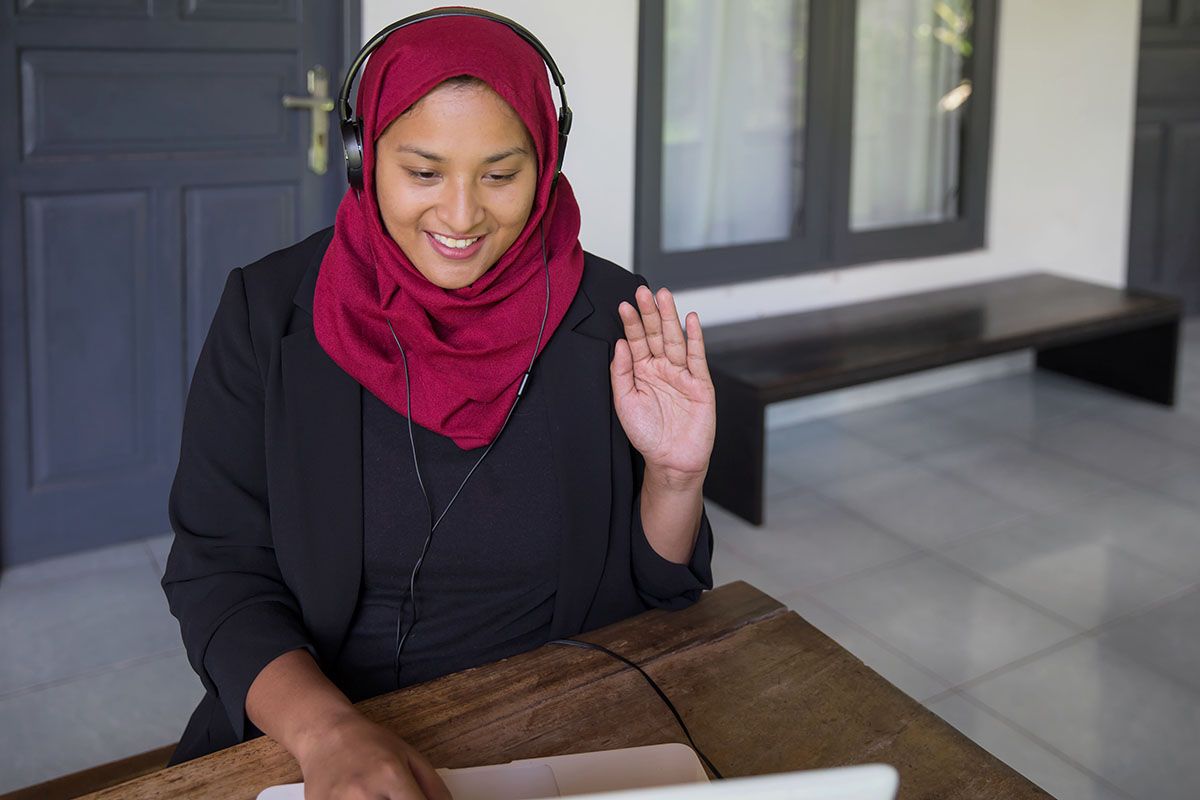
For many years, first-selection interviews between candidates and recruiters were often held over the phone. Today, easy access to various video-conferencing platforms encourages companies to prioritize face-to-face meetings on screen, and provides a unique opportunity for candidates to make a good first impression. When doing an online interview, it’s the little things that matter—a lot.
Here are 10 tips for making a good impression during an on-screen interview:
1. Get to know the software.
Whether you’re scheduled to talk over Skype, Go To Meeting, Google Hangout or any other software program, make sure you know how to use it before going live for the interview. Practice using the particular software by video chatting with a friend, or a family member who has a computer in the next room. For example, make sure you know how to mute without accidentally hanging up. Knowing the software will allow you to focus on the interview itself, not to mention avoiding looking confused by a new technology.
2. Open with the equivalent of a “digital handshake.”
On camera, as in person, first impressions are made within 17 seconds. And about 93% of our snap judgments come from non-verbal cues. In other words, we get a feel for someone not so much by what they say, but from how they stand (or sit, in this case), the expression on their face, how they’re dressed, and more.
For a first interview online, learn to master what Paul J. Bailo calls the “digital handshake.” Bailo is the author of The Essential Digital Interview Handbook. According to him, digital chemistry sparks between you and the interviewer within seconds of starting the chat. To create good digital chemistry, Bailo recommends a slight shoulder bend and eyes forward. You should open the chat with a “confident, professional, firm nod” and a warm smile. This simple gesture shows you’re happy to meet and ready to get down to business.
3. Look at the camera, not the screen.
To maintain eye contact, you have to look at the camera lens, not the screen. This is difficult to remember as we are all naturally tempted to look straight at our screens. And don’t forget that if you have a laptop plugged in to a screen, look at the camera lens on your laptop.
Also, if you are using a laptop, make sure it is raised and that the screen is straight and not leaned back. Ideally, your eyes should be at camera level.
4. Dress as you would for a face-to-face interview.
Dress professionally! This is an official interview, even if you’re sitting in your kitchen. Be careful about throwing on a dress shirt or a jacket on top of sweatpants. If you have to stand up to adjust a cable or a light, the interviewer may see your entire outfit.
5. Check your connection.
If your connection is weak, find a better Wi-Fi spot before your interview. Dropped calls and freezing are understandable, but these distract from the interview and reflect poorly on your ability to plan ahead. Make sure your audio is at the right level before the interview.
6. Close all other programs.
It irritates interviewers when pings and beeps interrupt the conversation. You should only keep tabs open that are relevant to the interview. Also, we advise against keeping your phone where you can see it; it’s just too tempting to look at alerts and messages that come in during your chat. Interviewers will notice, and it can hurt your chances of getting to the next stage.
7. Have a cheat sheet.
One of the great advantages of an online interview is that you can use a cheat sheet. Have your key points in large print, taped somewhere you can see them easily at a glance.
8. Keep your username and picture professional.
The first thing your interviewer will see isn’t you—it’s your profile. You don’t want your username and picture to send the wrong message and hurt your image. You can always create a professional Skype (or other) account. After all, they’re free.
9. Engage your interviewer.
If you’re just a talking head who goes on and on, your viewer will get bored—even more so than in a face-to-face interview. When the interviewer begins to lose interest, it’s easy for them to put you on a split screen and start reading their mail. Be sure to check in with them often, ask questions, and keep your answers relevant and to the point.
10. Don’t say anything after signing off until you are absolutely certain you won’t be overheard.
Sometimes you think you’ve hung up, but actually you haven’t. Check and check again. If unsure, shut everything down. We have heard of cases where candidates believed their camera and audio were turned off after the interview—but sadly, they weren’t. Even if nothing dramatic is said or shown, such an oversight could give the impression that you are careless.
Ready to switch to interview mode? Check out our job postings and see where your talent can take you.









